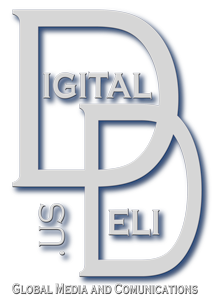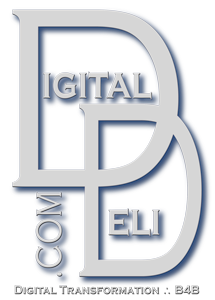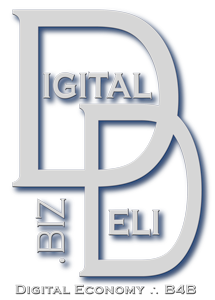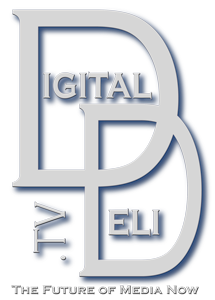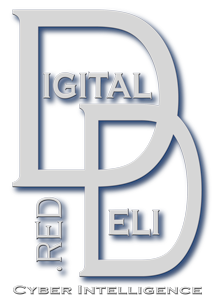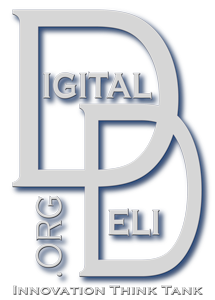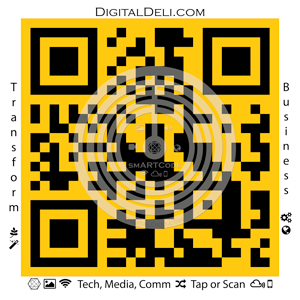Digital Accessibility Statement
This Digital Accessibility Statement is made by Digital Deli, Global Media and Communications [DigitalDeli.us], Operations and Administration for the Digital Deli Family of domains, including: DigitalDeli.us, DigitalDeli.com, DigitalDeli.biz, DigitalDeliArchive.com, DigitalDeli.tv, DigitalDeli.red, DigitalDeli.org.
Declaration of Conformance:
Original Cerification: August 05, 2019
Last Revised: January 14, 2025
Conformance: Web Content Accessibility Guideline 2.21
Conformance Level: AA with Exception
Guideline Title: Web Content Accessibility Guideline
Version: 2.21
URI: WCAG 2.21
Abbreviation: WCAG 2.21
Special Needs Contact: accessibility [at] digitaldeli.us
Overview
The Digital Deli Family of domains, properties and brands are committed to making our digital content accessible to the widest audience possible, including those with visual, auditory, cognitive and motor special needs.
To achieve our accessibility mission we use "Web Content Accessibility Guideline 2.1" (WCAG 2.1) as our guidepost and reference standard for continually improving accessibility.
WCAG 2.1 is a technical document with many elements that are used to classify Conformance Levels: A, AA and AAA.
Publishing web content involves many complex technologies that span a wide range of disciplines. We use a multi-disciplinary approach to evaluate accessibility enhancements for those with special needs.
Some elements of WCAG 2.1 can present technical challenges because: a solution does not exist; technologies relied on are not cross compatible; an accessibility security issue affects user privacy; one enhancement, for technical reasons, may negatively impact another resulting in an equal access decrease; we have no control over third party service providers (credit card processors, map tile servers) or software.
WCAG 2.1 provides a means to declare a conformance level (A, AA, AAA) with exception. The Digital Deli Family of domains are partially conformant with WCAG 2.1 Level AA. Partially conformant means we do not meet every element of the Level AA criteria and note that as an exception.
While it is widely considered nearly impossible to meet Level AAA today, we do support a number of 'AAA' elements. Digital Deli Innovation Think Tank is developing next generation software and systems that will open a much larger range of digital content to those with special needs.
As screen time increases at ever younger ages, the proliferation of the global digital information economy accelerates, elderly population demographics increase, and the number of digital devices and services expand exponentially -- accessible designs unlock huge potential for those with special needs.
Our accessibility mission is driven by our desire to extend and expose rich content to enhance user engagement and knowledge transfer using innovative 21st century technology solutions. As designers, developers and technology architects this is far more than just a guideline. We carry out our accessibility mission with great care and precision in conjunction with our B-Corp Philosophy of enriching our world and proving it.
It is important to keep in mind, as designers, developers, writers, server operators, information security professionals, technology architects, media experts and storytellers - we are all human. If we should make a mistake in error, we have the will and capability to analyze it and take appropriate corrective action. If a user with a special need has a problem accessing content, our door is always open, contact us.
Technologies Relied Upon
We use modern, text-based, semantic web development practices. We do not rely on non-HTML plugins or applets such as Java, ActiveX, or Flash. The technologies used to render our web sites include:
- HTML5
- CSS3
- Javascript
- PHP
- Python
- SQL
Accessibility Commitment
We monitor our websites to ensure compatibility with recent versions of:
- Popular screen readers
- Screen magnifiers
- Speech recognition software
- Operating system speech packages
Accessibility Continuous Improvement
We improve the accessibility of our websites for users with special needs by:
- Advanced page reflow on font size adjustment
- Consistent color and contrast ratio optimization for text
- Skip to content links on each page
- ARIA attributes send information to the accessibility API
Accessibility Monitoring
We monitor the accessibility of Digital Deli websites using: browser and operating system simulations; log file analysis; tools and techniques from the Center for Persons with Disabilities at Utah State University (US); direct feedback from people with visual, auditory, cognitive and motor challenges.
Technologies Supported
We support a wide range of modern browsers, operating systems and assistive technologies including:
- Mozilla Firefox
- Google Chrome
- Microsoft Edge
- Apple Safari
- Samsung Internet
- Windows
- Apple
- Android
- IOS
- Unix/Linux
- NVDA
- TalkBack
- JAWS
- VoiceOver
Digital Deli Network Operations Control maintains a list of browser version / operating system combinations supported. This is a valuable first step when trying to diagnose an accessibility issue. This is available upon request at no charge.
WCAG 2.1 | Exceptions
Descriptive Text Transcripts: some pre-recorded audio does not have associated transcripts or does not include the text of the audio on the page. We are in the process of adding transcripts where needed.
Synchronized Captions: non-live video does not contain synchronized captions. We are in the process of integrating an enterprise class synchronized closed caption solution into our pipeline for non-live video content.
E-Commerce: electronic order transaction processing is partially accessible to certain individuals with special needs. This is a complex technical interaction involving third party service providers and software. As accessibility solutions become available they are tested, certified and integrated into our trusted computing configuration management protocol in accordance with Payment Card Industry Data Security Standards (PCI-DSS) and General Data Protection Regulations (GDPR).
Data Visualization: we use third party open source repositories and technologies in our development environment to render interactive (charts, graphs) statistics. While this capability greatly extends comprehension of data for the widest range of users -- the data elements are only partially accessible to certain individuals with special needs. Data visualization technologies are constantly being updated and we are actively developing enhancements to improve accessibility.
Interactive Maps: we use third party open source repositories and technologies in our development environment to render custom interactive geospatial visualization. This may include media maps, data maps and other specialized features. This is a complex technical integration making some information -- partially accessible to certain individuals with special needs. These technologies are constantly being updated and we are actively developing enhancements to improve accessibility.
Additional Information
Below are a few additional pieces of information pertaining to special needs accessibility.
Optimum Viewing:
Our Reactive Internet Multimedia (RIM) web development environment utilizes a vector based mathematical model for device independent two dimensional page reflow, while programmatically retaining the logical order of content elements. This means content is perfectly formatted regardless of resolution, while instantly responding to orientation charges.
Magnified Content:
Content magnified by a user will instantly reflow the page. A user is never required to scroll horizontally as this is programmatically eliminated by the development environment.
Color Management:
To ensure accurate, consistent and reproducible color our digital workflow is fully color managed. Measurement instruments are used to: create custom color profiles for viewing conditions, image capture devices, output devices and for transcoding from one color space to another.
A calibrated gray scale strip is provided above the footer on all pages to help users without calibrated monitors adjust screen luminance for a better viewing experience.
Color, Contrast and Luminance:
Text, background, link, heading and button colors are optimized to reduce eye strain while maintaining a high contrast ratio meeting or exceeding Level AAA.
Color Blindness:
We perform color combination contrast ratio tests that simulate people with insensitivity to green (Deuteranopia), red (Protanopia) and blue (Tritanopia). We meet or exceed Level AAA contrast ratio values for individuals with color blindness.
LED Blue Light:
The color spectrum of modern LED backlit screens will often contain increased blue wavelengths. Seniors tend to have increased blue sensitivity. Extended exposure by older adults is known to be harmful. It has been suggested there may be a risk of premature macular degeneration in young healthy eyes. We err on the side of caution by selecting color combinations that mute or minimize wavelengths considered most harmful to the eyes. This makes for much easier reading, especially at night.
Seizure Health Hazard:
Blinking at certain frequencies and red flashing is known by medical science to trigger seizures in susceptible individuals. The greatest care is always taken to ensure content does not knowingly contain elements that could trigger this condition. Internal policy furthermore bans all use of flashing or blinking web content elements.
Expressive Synthetic Audio:
Screen readers for the web have few (bold, emphasis, underline) technical means of realistically interpreting inflection or intonation. When that is important for comprehension and contextual understanding the Digital Deli Studios™ will frequently generate expressive synthetic audio to give the user a more robust or authentic experience.
Professional Human Narration:
The gold standard for narration or voice over is a pleasing, soothing and expressive human voice. We use well refined scripts with markup, coaching and multiple (audio) takes to achieve that golden voice. This has proven highly effective for increasing attention, comprehension and retention of information presented. Professional audio engineering of soundtracks are the heart and soul of any presentation.
Early Readers, Cognitive Challenged, Complex Information:
To enhance knowledge transfer, comprehension and retention we have found it effective to provide expressive audio and text on some pages. Users increase font size, press play and read along with our digital assistant Abigail. A nice touch, even if no special need exists.
Eco-Friendly Sustainable Designs:
While WCAG 2.1 may not address accessibility in relation to availability of electricity, a smartphone will only work as long as the battery is charged. The designs used on our web sites use less (screen) power to access the same content than a majority of mainstream sites. This makes our content more accessible longer when access to electricity (emergency, under-privileged) is not available or limited.
Accessibility Contact Information
We strive to provide the content on our sites to the largest group of users possible. If you have accessibility related questions or wish to make an accessibility recommendation, please contact us at: accessibility [at] digitaldeli.us.


